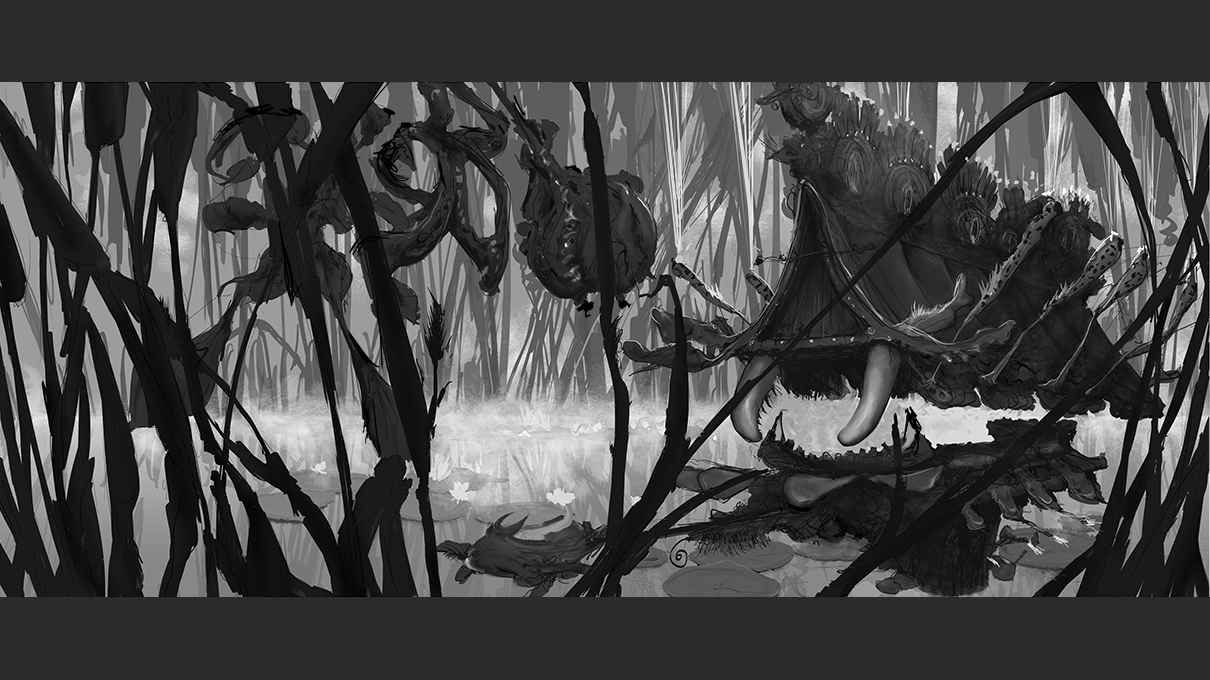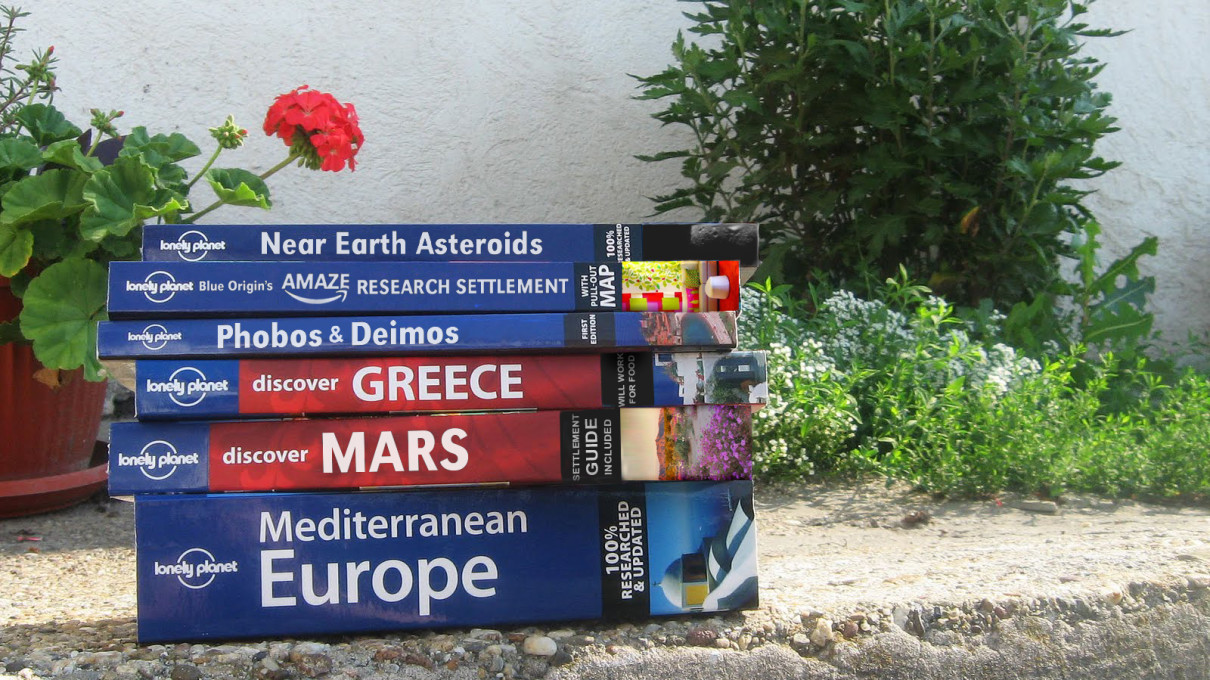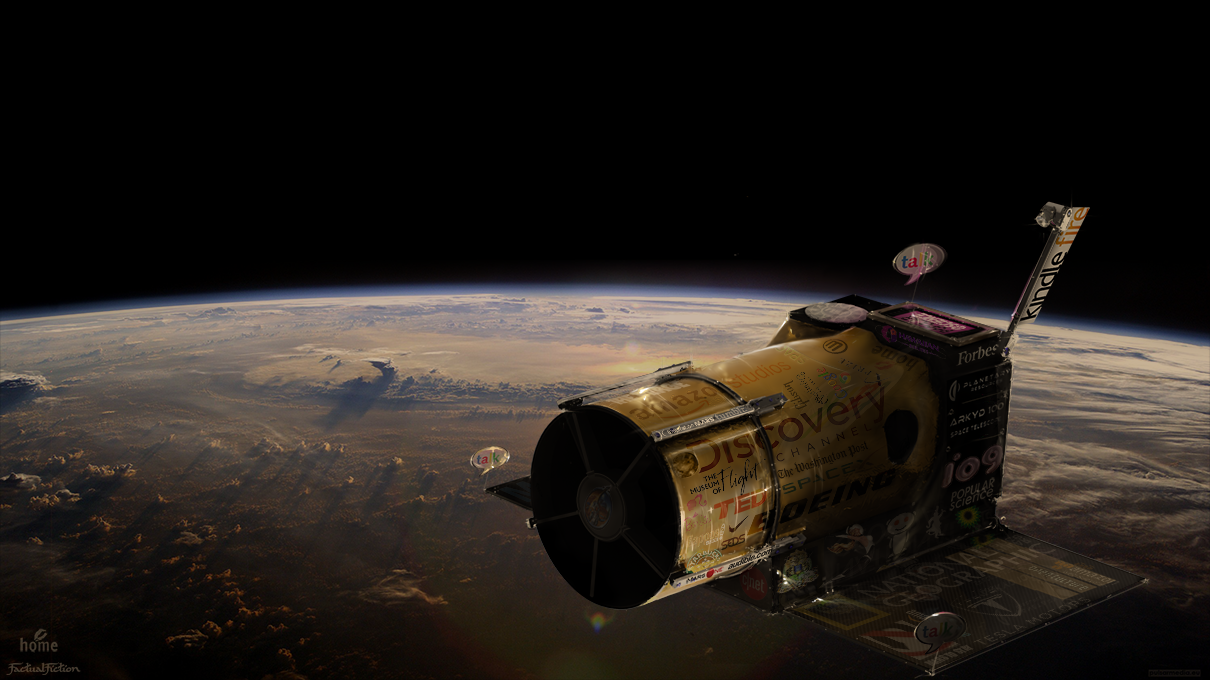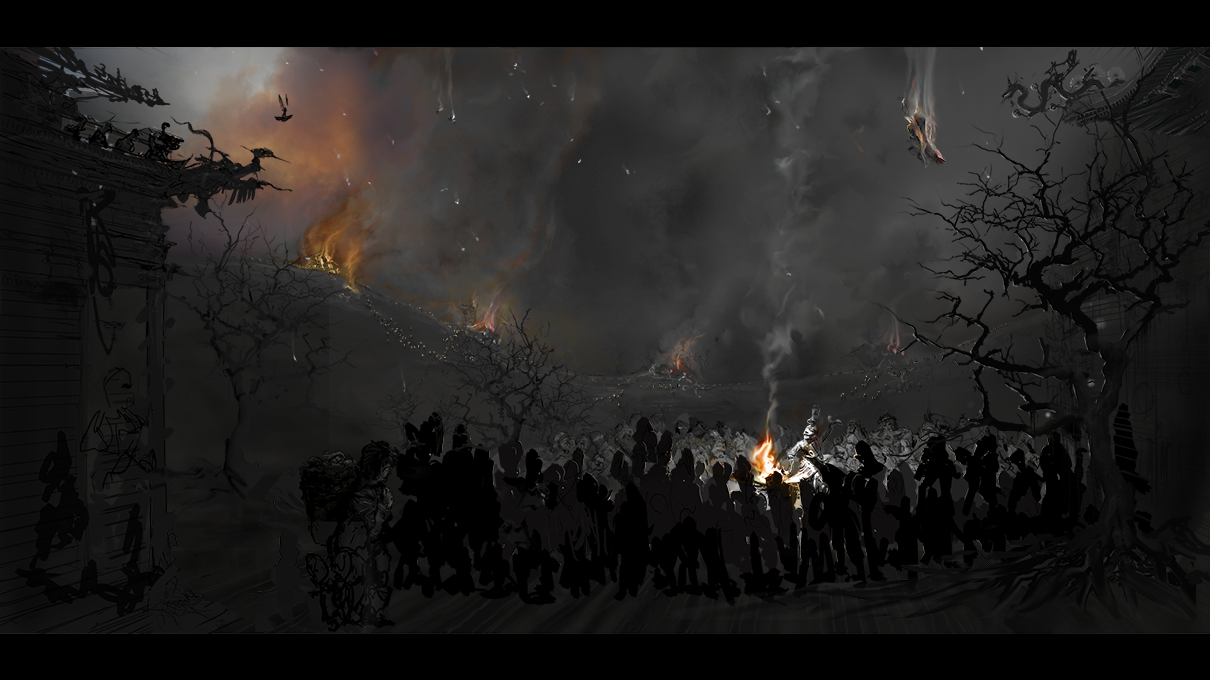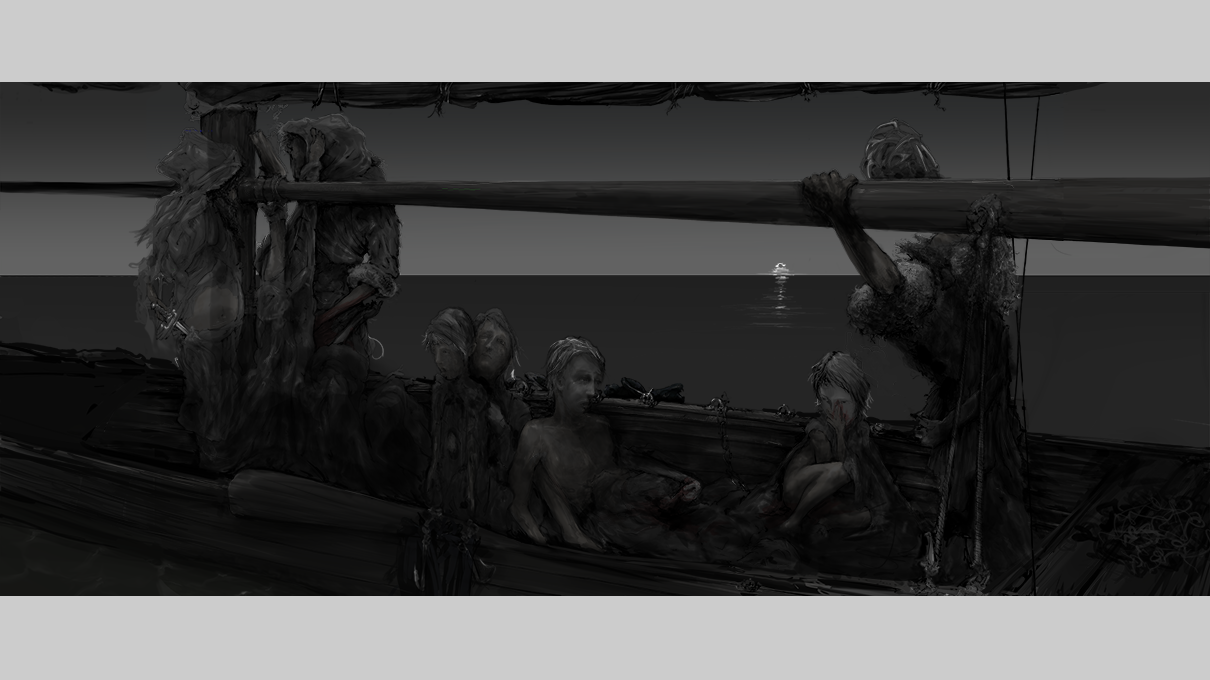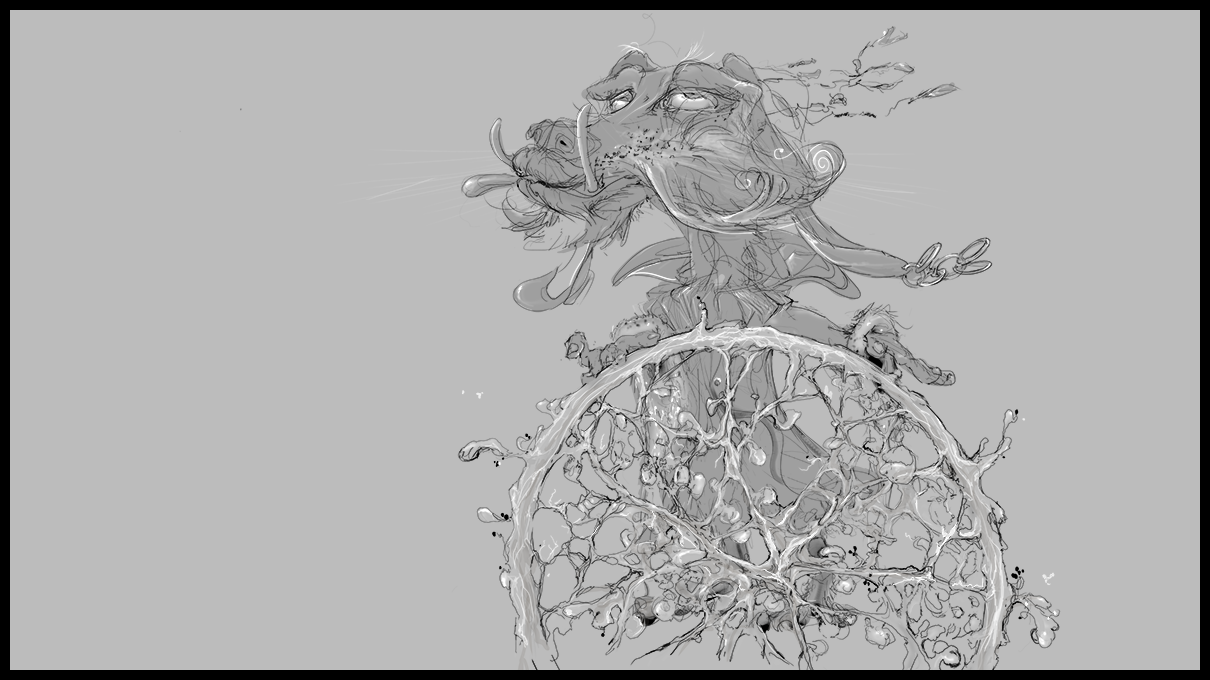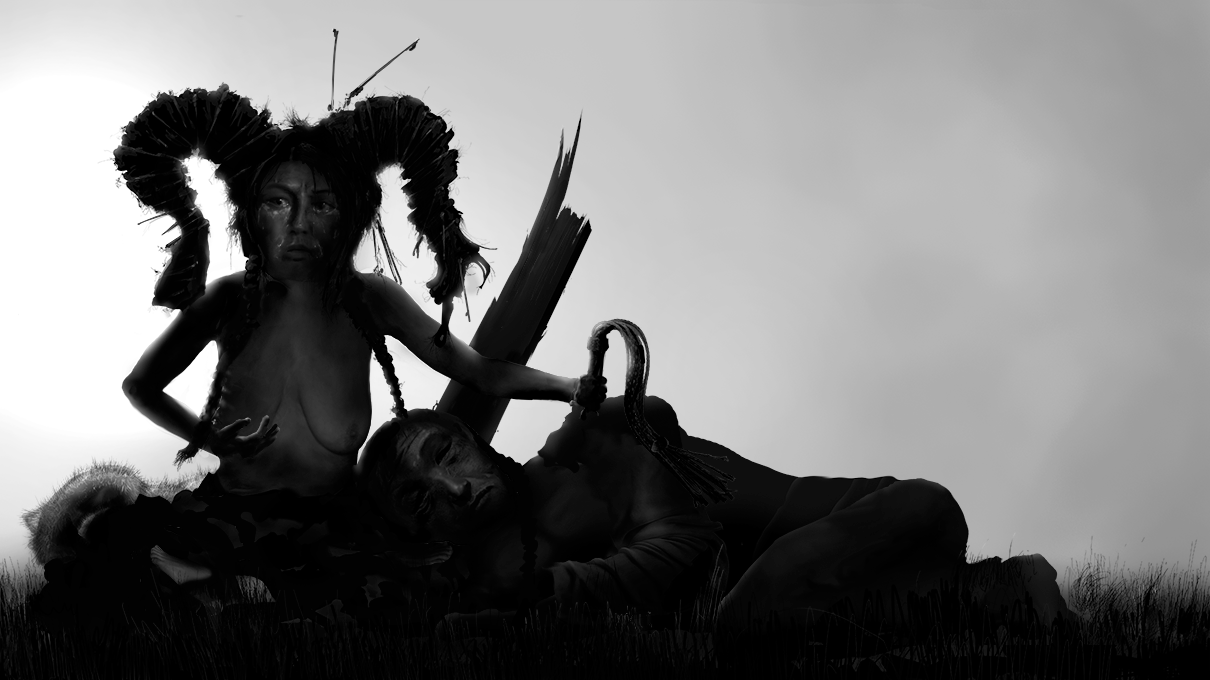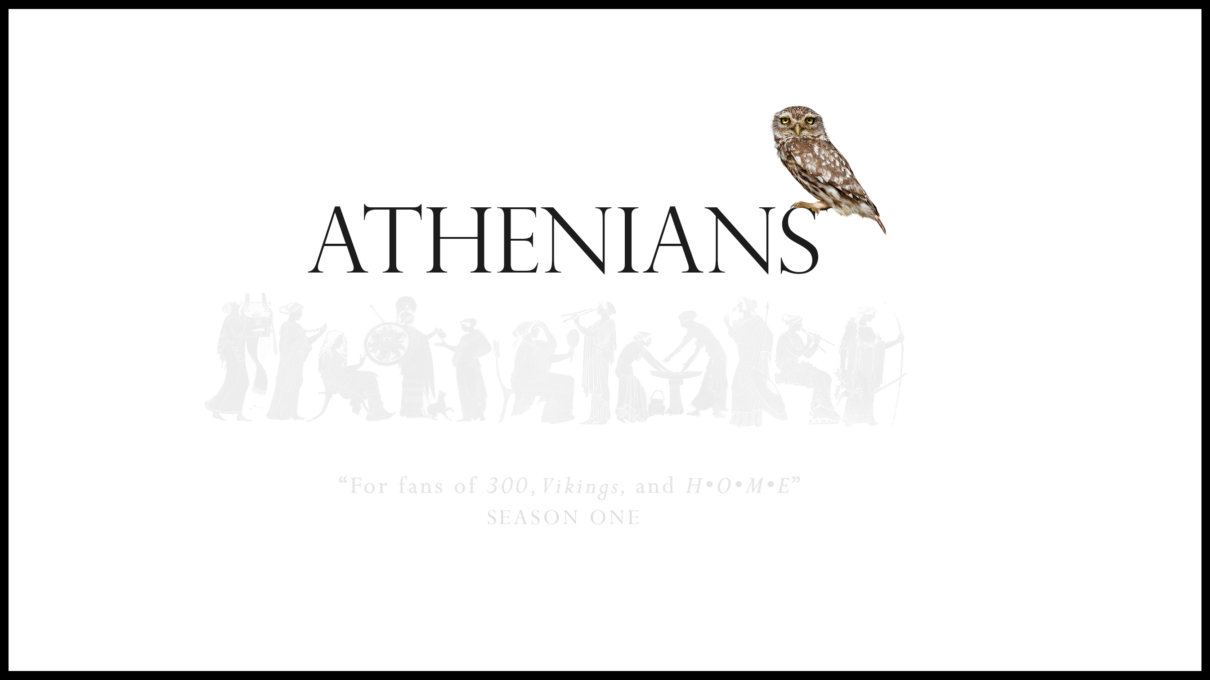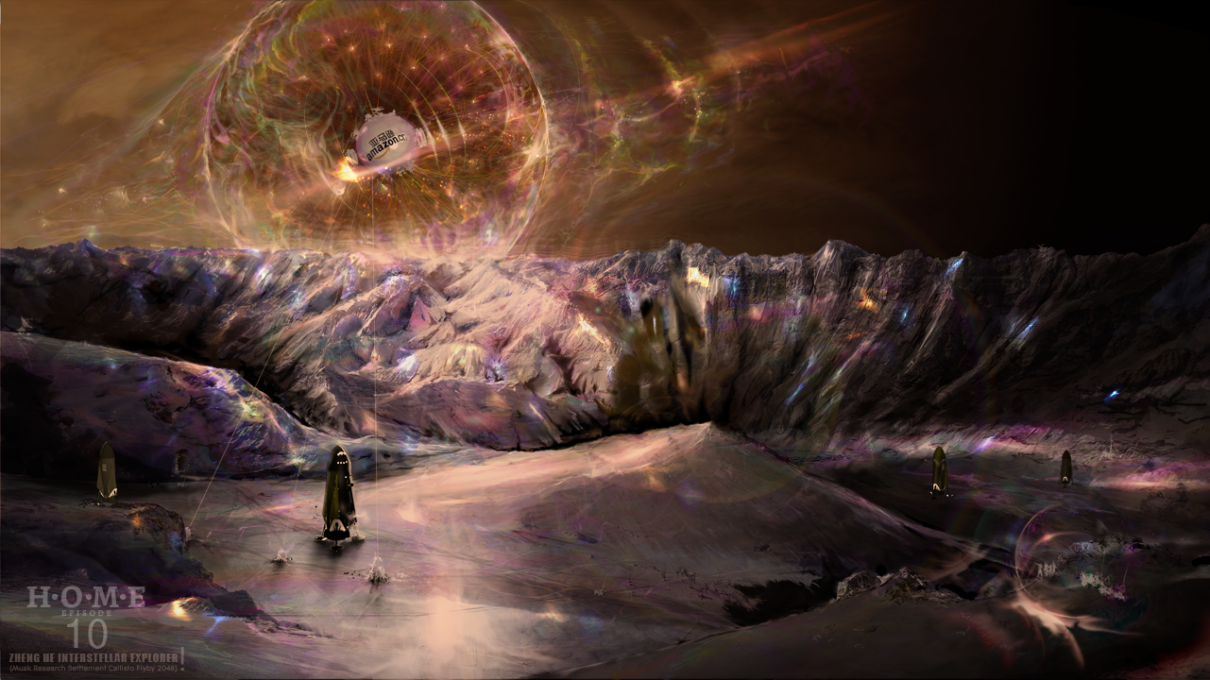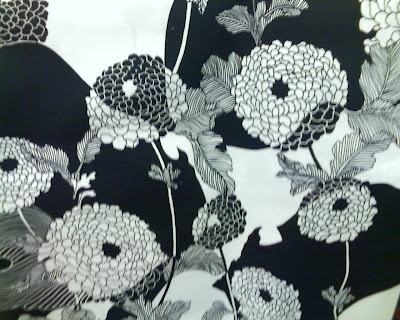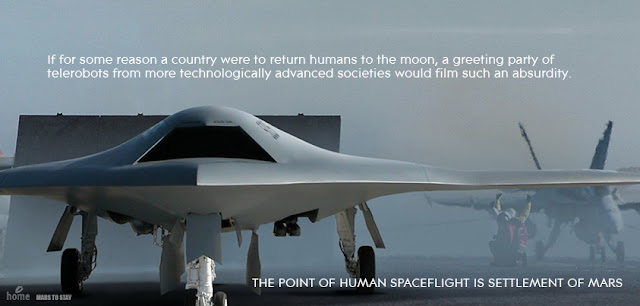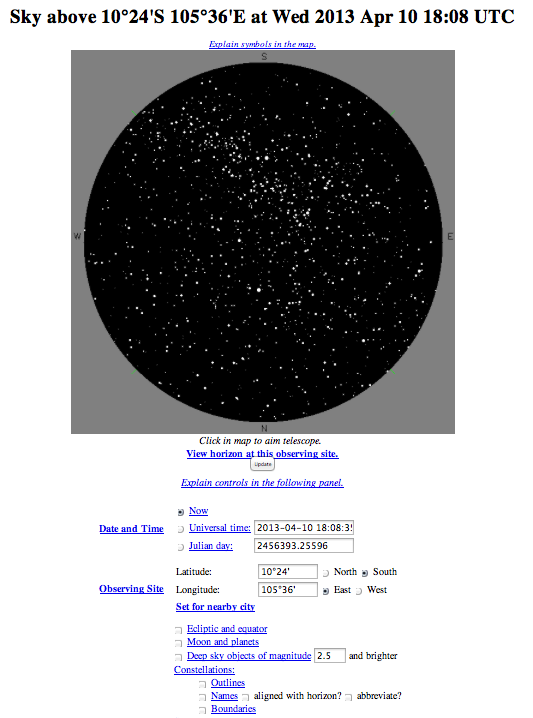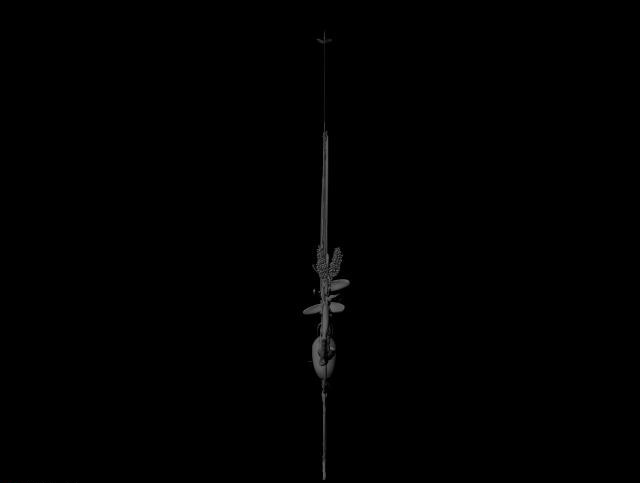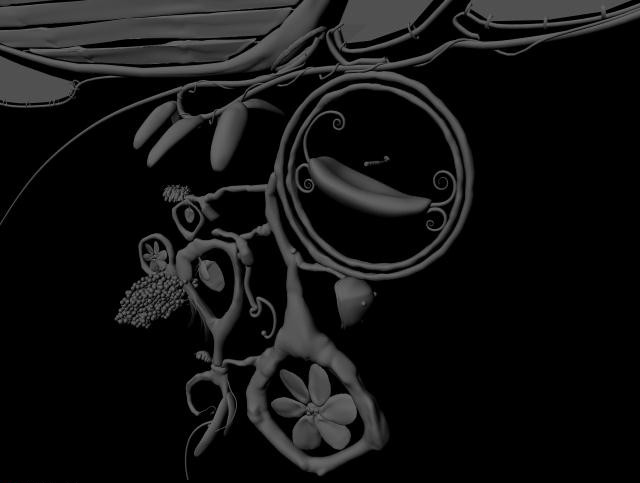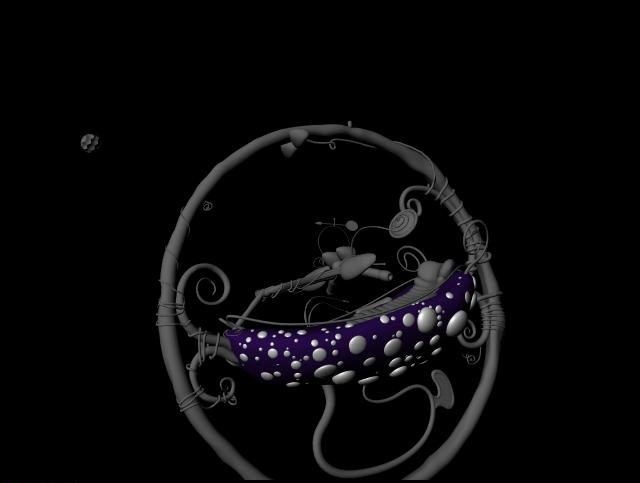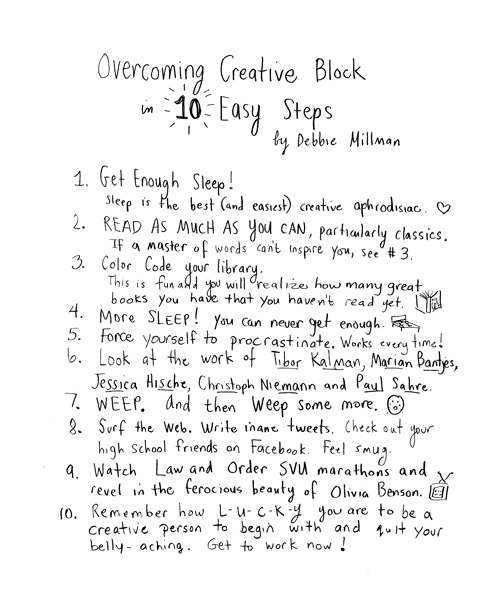Even now
My thought is all of this gold-tinted king’s daughter
With garlands tissue and golden buds,
Smoke tangles of her hair, and sleeping or waking
Feet trembling in love, full of pale languor;
My thought is clinging as to a lost learning
Slipped down out of the minds of men,
Labouring to bring her back into my soul.
Even now
If I see in my soul the citron-breasted fair one
Still gold-tinted, her face like our night stars,
Drawing unto her; her body beaten about with flame,
Wounded by the flaring spear of love,
My first of all by reason of her fresh years,
Then is my heart buried alive in snow.
Even now
If my girl with lotus eyes came to me again
Weary with the dear weight of young love,
Again I would give her to these starved twins of arms
And from her mouth drink down the heavy wine,
As a reeling pirate bee in fluttered ease
Steals up the honey from the nenuphar.
Even now
I bring her back, ah, wearied out with love
So that her slim feet could not bear her up;
Curved falls of her hair down on her white cheeks;
In the confusion of her coloured vests
Speaking that guarded giving up, and her scented arms
Lay like cool bindweed over against my neck.
Even now
I bring her back to me in her quick shame,
Hiding her bright face at the point of day;
Making her grave eyes move in watered stars,
For love’s great sleeplessness wandering all night,
Seeming to sail gently, as that pink bird,
Down the water of love in a harvest of lotus.
Even now
If I saw her lying all wide eyes
And with collyrium the indent of her cheek
Lengthened to the bright ear and her pale side
So suffering the fever of my distance,
Then would my love for her be ropes of flowers, and night
A black-haired lover on the breasts of day.
Even now
I see the heavy startled hair of this reed-flute player
Who curved her poppy lips to love dances,
Having a youth’s face madding like the moon
Lying at her full; limbs ever moving a little in love,
Too slight, too delicate, tired with the small burden
Of bearing love ever on white feet.
Even now
She is present to me on her beds,
Balmed with the exhalation of a flattering musk,
Rich with the curly essence of santal;
Girl with eyes dazing as the seeded-wine,
Showing as a pair of gentle nut-hatches
Kissing each other with their bills, each hidden
By turns within a little grasping mouth.
Even now
She swims back in the crowning hour of love
All red with wine her lips have given to drink,
Soft round the mouth with camphor and faint blue
Tinted upon the lips, her slight body,
Her great live eyes, the colourings of herself
A clear perfection; sighs of musk outstealing
And powdered wood spice heavy of Cashmir.
Even now
I see her; fair face blond like gold
Rich with small lights, and tinted shadows surprised
Over and over all of her; with glittering eyes
All bright for love but very love-weary,
As it were the conjuring disk of the moon when Rahu ceases
With his dark stumbling-block to hide her rays.
Even now
She is art-magically present to my soul
And that one word of strange heart’s ease, good-bye,
That in the night, in loth moving to go,
And bending over to a golden mouth,
I said softly to the turned away
Tenderly tired hair of this king’s daughter.
Even now
My eyes that hurry to see no more are painting, painting
Faces of my lost girl. O golden rings,
That tap against cheeks of small magnolia leaves,
O whitest so soft parchment where
My poor divorced lips have written excellent
Stanzas of kisses, and will write no more.
Even now
Death sends me the flickering of powdery lids
Over wild eyes and the pity of her slim body
All broken up with the weariness of joy;
The little red flowers of her breasts to be my comfort
Moving above scarves, and for my sorrow
Wet crimson lips that once I marked as mine.
Even now
By a cool noise of waters in the spring
The asoka with young flowers that feign her fingers
And bud in red; and in the green vest pearls kissing
As it were rose leaves in the gardens of God; the shining at night
Of white cheeks in the dark; smiles from light thoughts within,
And her walking as of a swan; these trouble me.
Even now
The pleased intimacy of rough love
Upon the patient glory of her form
Racks me with memory; and her bright dress
As it were yellow flame, which the white hand
Shamefastly gathers in her rising haste,
The slender grace of her departing feet.
Even now
When all my heavy heart is broken up
I seem to see my prison walls breaking
And then a light, and in that light a girl
Her fingers busied about her hair, her cool white arms
Faint rosy at the elbows, raised in the sunlight,
And temperate eyes that wander far away.
Even now
I seem to see my prison walls come close,
Built up of darkness, and against that darkness
A girl no taller than my breast and very tired,
Leaning upon the bed and smiling, feeding
A little bird and lying slender as ash-trees,
Sleepily aware as I told of the green
Grapes and the small bright-coloured river flowers.
Even now
I see her, as I used, in her white palace
Under black torches throwing cool red light,
Woven with many flowers and tearing the dark.
I see her rising, showing all her face
Defiant timidly, saying clearly;
Now I shall go to sleep, good-night, my ladies.
Even now
Though I am so far separate, a flight of birds
Swinging from side to side over the valley trees,
Passing my prison with their calling and crying,
Bring me to see my girl. For very bird-like
Is her song singing, and the state of a swan
In her light walking, like the shaken wings
Of a black eagle falls her nightly hair.
Even now
I know my princess was happy. I see her stand
Touching her breasts with all her flower-soft fingers,
Looking askance at me with smiling eyes.
There is a god that arms him with a flower
And she was stricken deep. Her, oh die here.
Kiss me and I shall be purer than quick rivers.
Even now
They chatter her weakness through the two bazaars
Who was so strong to love me. And small men
That buy and sell for silver being slaves
Crinkle the fat about their eyes; and yet
No Prince of the Cities of the Sea has taken her,
Leading to his grim bed. Little lonely one,
You clung to me as a garment clings, my girl.
Even now
Only one dawn shall rise for me. The stars
Revolve to-morrow’s night and I not heed.
One brief cold watch beside an empty heart
And that is all. This night she rests not well;
Oh, sleep; for there is heaviness for all the world
Except for the death-lighted heart of me.
Even now
My sole concern the slipping of her vests,
Her little breasts the life beyond this life.
One night of disarray in her green hems,
Her golden cloths, outweighs the order of the earth,
Making of none effect the tides of the sea.
I have seen her enter the temple meekly and there seem
The flag of flowers that veils the very god.
Even now
I mind the coming and talking of wise men from towers
Where they had thought away their youth. And I, listening,
Found not the salt of the whispers of my girl,
Murmur of confused colours, as we lay near sleep;
Little wise words and little witty words
Wanton as water, honeyed with eagerness.
Even now
I call to mind her weariness in the morning
Close lying in my arms, and tiredly smiling
At my disjointed prayer for her small sake.
Now in my morning the weariness of death
Sends me to sleep. Had I made coffins
I might have lived singing to three score.
Even now
The woodcutter and fisherman turn home,
With on his axe the moon and in his dripping net
Caught yellow moonlight. The purple flame of fire
Calls them to love and sleep. From the hot town
The maker of scant songs for bread wanders
To lie under the clematis with his girl.
The moon shines on her breasts, and I must die.
Even now
I have a need to make up prayers, to speak
My last consideration of the world
To the great thirteen gods, to make my balance
Ere the soul journeys on. I kneel and say:
Father of Light. Leave we it burning still
That I may look at you. Mother of the Stars,
Give me your feet to kiss; I love you, dear.
Even now
I seem to see the face of my lost girl
With frightened eyes, like a wood wanderer,
In travail with sorrowful waters, unwept tears
Labouring to be born and fall; when white face turned
And little ears caught at the far murmur,
The pleased snarling of the tumult of dogs
When I was buried away down the white road.
Even now
When slow rose-yellow moons looked out at night
To guard the sheaves of harvest and mark down
The peach’s fall, how calm she was and love worthy.
Glass-coloured starlight falling as thin as dew
Was wont to find us at the spirit’s starving time
Slow straying in the orchard paths with love.
Even now
Love is a god and Rati the dark his bride;
But once I found their child and she was fairer,
That could so shine. And we were each to each
Wonderful and a presence not yet felt
In any dream. I knew the sunset earth
But as a red gold ring to bear my emerald
Within the little summer of my youth.
Even now
I marvel at the bravery of love,
She, whose two feet might be held in one hand
And all her body on a shield of the guards,
Lashed like a gold panther taken in a pit
Tearfully valiant, when I too was taken’
Bearding her black-beard father in his wrath,
Striking the soldiers with white impotent hands.
Even now
I mind that I loved cypress and roses, dear,
The great blue mountains and the small grey hills,
The sounding of the sea. Upon a day
I saw strange eyes and hands like butterflies;
For me at morning larks flew from the thyme
And children came to bathe in little streams.
Even now
Sleep left me all these nights for your white bed
And I am sure you sistered lay with sleep
After much weeping. Piteous little love,
Death is in the garden, time runs down,
The year that simple and unexalted ran till now
Ferments in winy autumn, and I must die.
Even now
I mind our going, full of bewilderment
As who should walk from sleep into great light,
Along the running of the winter river,
A dying sun on the cool hurrying tide
No more by green rushes delayed in dalliance,
With a clear purpose in his flower-flecked length
Informed, to reach Nirvana and the sea.
Even now
I love long black eyes that caress like silk,
Ever and ever sad and laughing eyes,
Whose lids make such sweet shadow when they close
It seems another beautiful look of hers.
I love a fresh mouth, ah, a scented mouth,
And curving hair, subtle as a smoke,
And light fingers, and laughter of green gems.
Even now
I mind asking: Where love and how love Rati’s priestesses?
You can tell me of their washings at moon-down
And if that warm basin have silver borders.
Is it so that when they comb their hair
Their fingers, being purple-stained, show
Like coral branches in the black sea of their hair?
Even now
I remember that you made answer very softly,
We being one soul, your hand on my hair,
The burning memory rounding your near lips;
I have seen the priestesses of Rati make love at moon-fall
And then in a carpeted hall with a bright gold lamp
Lie down carelessly anywhere to sleep.
Even now
I have no surety that she is not Mahadevi
Rose red of Siva, or Kapagata
The wilful ripe Companion of the King,
Or Krishna’s own Lakshmi, the violet-haired.
I am not certain but that dark Brahma
In his high secret purposes
Has sent my soft girl down to make the three worlds mad
With capering about her scented feet.
Even now
Call not the master painters from all the world,
Their thin black boards, their rose and green and grey,
Their ashes of lapis ultramarine, Their earth of shadows the umber.
Laughing at art
Sunlight upon the body of my bride,
For painting not nor any eyes for ever.
Oh warm tears on the body of my bride.
Even now
I mind when the red crowds were passed and it was raining
How glad those two that shared the rain with me;
For they talked happily with rich young voices
And at the storm’s increase, closer and with content,
Each to the body of the other held
As there were no more severance for ever.
Even now
The stainless fair appearance of the moon
Rolls her gold beauty over an autumn sky
And the stiff anchorite forgets to pray;
How much the sooner I, if her wild mouth
Tasting of the taste of manna came to mine
And kept my soul at balance above a kiss.
Even now
Her mouth careless scented as with lotus dust
Is water of love to the great heat of love,
A tirtha very holy, a lover’s lake
Utterly sacred. Might I go down to it
But one more time, then should I find a way
To hold my lake for ever and ever more
Sobbing out my life beside the waters.
Even now
I mind that the time of the falling of blossoms started my dream
Into a wild life, into my girl;
Then was the essence of her beauty spilled
Down on my days so that it fades not,
Fails not, subtle and fresh, in perfuming
That day, and the days, and this the latest day.
Even now
She with young limbs as smooth as flower pollen,
Whose swaying body is laved in the cool
Waters of languor, this dear bright-coloured bird,
Walks not, changes not, advances not
Her weary station by the black lake
Of Gone Forever, in whose fountain vase
Balance the water-lilies of my thought.
Even now
Spread we our nets beyond the farthest rims
So surely that they take the feet of dawn
Before you wake and after you are sleeping
Catch up the visible and invisible stars
And web the ports the strongest dreamer dreamed,
Yet is it all one, Vidya, yet it is nothing.
Even now
The night is full of silver straws of rain,
And I will send my soul to see your body
This last poor time. I stand beside our bed;
Your shadowed head lies leaving a bright space
Upon the pillow empty, your sorrowful arm
Holds from your side and clasps not anything.
There is no covering upon you.
Even now
I think your feet seek mine to comfort them.
There is some dream about you even now
Which I’ll not hear at waking. Weep not at dawn,
Though day brings wearily your daily loss
And all the light is hateful. Now is it time
To bring my soul away.
Even now
I mind that I went round with men and women,
And underneath their brows, deep in their eyes,
I saw their souls, which go slippng aside
In swarms before the pleasure of my mind;
The world was like a flight of birds, shadow or flame
Which I saw pass above the engraven hills.
Yet was there never one like to my woman.
Even now
Death I take up as consolation.
Nay, were I free as the condor with his wings
Or old kings throned on violet ivory,
Night would not come without beds of green floss
And never a bed without my bright darling.
Most fit that you strike now, black guards,
And let the fountain out before the dawn.
Even now
I know that I have savoured the hot taste of life
Lifting green cups and gold at the great feast.
Just for a small and a forgotten time
I have had full in my eyes from off my girl
The whitest pouring of eternal light.
The heavy knife. As to a gala day.
___
“This is a versified translation of the Caurapañcāśikā. This love poem of fifty stanzas was written by the Kasmiri poet Bilhana Kavi in the 11th century. The story runs that the Brahman Bilhana had a clandestine love affair with Princess Yaminipurnatilaka, the daughter of King Madanabhirama. He was discovered and Bilhana wrote this poem in prison before he learned whether he would be executed or banished. The historic outcome is unknown, which adds to the readers’ suspense.
Initially this poem was transmitted orally, and by the time it was written down, there several variations: the South Indian versions tend to have a happy ending, and the Northern, Kashmiri, recension has an open ending.
The Caurapañcāśikā was ‘discovered’ by Europeans in the nineteenth century. The first French edition, published in The Journal Asiatique of 1848, was based on one of the South Indian versions with a happy ending. There were several 19th century translations in various languages; it was suitable material for Romantic poets, including Sir Edwin Arnold, who produced his own (very loose) translation. In 1919, the English poet Powys Mathers produced this free-verse translation, titled Black Marigolds. This was the translation which John Steinbeck quotes in Cannery Row. A modern version worth looking for isThe Secret Delights of Love, by Gertrude Clorius Schwebell, Peter Pauper Press, New York [1966].”

